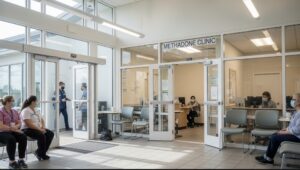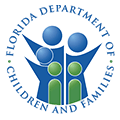Alcoholism is a complex and far-reaching issue that not only affects individuals struggling with addiction but also has profound implications for their families. At Beachcomber Recovery, a leading rehab center located in the sunny state of Florida, we recognize the interconnected nature of alcoholism and its impact on family dynamics. In this article, we’ll explore the concept of alcoholism as a family disease, with a specific focus on adult children of alcoholics in Florida. By shedding light on this important topic, we aim to provide insight, support, and resources to individuals and families navigating the challenges of alcoholism.
Understanding Alcoholism as a Family Disease
Alcoholism is often referred to as a family disease because it doesn’t just affect the individual struggling with addiction – it impacts the entire family unit. The behaviors and consequences of alcoholism can create a ripple effect that permeates every aspect of family life, from relationships and communication patterns to emotional well-being and mental health. Family members, including adult children of alcoholics, may experience a range of emotions, such as fear, anger, guilt, and shame, as they grapple with the effects of their loved one’s addiction.
The Role of Adult Children of Alcoholics
Adult children of alcoholics (ACoAs) are individuals who grew up in households where one or both parents struggled with alcoholism. As a result, ACoAs may carry emotional scars and psychological wounds from their upbringing, even into adulthood. They may have experienced neglect, abuse, instability, and dysfunction within their family environment, leading to challenges in forming healthy relationships, setting boundaries, and managing emotions.
Breaking the Cycle: Healing from Generational Trauma
At Beachcomber Recovery, we understand the importance of breaking the cycle of generational trauma and healing from the impact of alcoholism on families. Our comprehensive treatment programs address not only the individual’s addiction but also the underlying issues and family dynamics that contribute to their substance abuse. Through therapy, support groups, and holistic interventions, we provide ACoAs with the tools, insights, and coping skills they need to heal from past trauma, rebuild self-esteem, and create healthier relationships.
Navigating Family Dynamics
One of the key challenges for ACoAs is navigating complex family dynamics and establishing healthy boundaries with their alcoholic parent or other family members. This may involve setting limits on interactions, practicing self-care, and seeking support from trusted friends, therapists, or support groups such as Al-Anon. By prioritizing their own well-being and emotional health, ACoAs can break free from the cycle of codependency and enable their loved ones to take responsibility for their own recovery journey.
Finding Support and Community
At Beachcomber Recovery, we recognize the importance of support and community for ACoAs seeking healing and recovery. Through our specialized support groups, ACoAs can connect with others who share similar experiences and find solidarity, understanding, and encouragement in their journey. These groups provide a safe space for ACoAs to express themselves, share their stories, and receive validation and support from peers who have walked a similar path.
Certainly! Let’s further explore the specific challenges faced by adult children of alcoholics (ACoAs) and how Beachcomber Recovery addresses these issues in their treatment programs:
Addressing Emotional Wounds
Growing up in a household affected by alcoholism can leave lasting emotional wounds on ACoAs. Many may struggle with feelings of inadequacy, low self-esteem, and a pervasive sense of shame. At Beachcomber Recovery, we provide ACoAs with a safe and nurturing environment to explore and address these emotions. Through individual therapy, group counseling, and experiential therapies such as art therapy and mindfulness practices, we help ACoAs heal from past trauma and develop healthy coping mechanisms for managing difficult emotions.
Rebuilding Trust and Relationships
Alcoholism often strains relationships within families, leading to mistrust, resentment, and broken bonds. ACoAs may struggle with feelings of resentment towards their alcoholic parent or other family members, as well as difficulty in forming and maintaining healthy relationships. At Beachcomber Recovery, we offer family therapy sessions aimed at rebuilding trust and communication within the family unit. Through facilitated discussions and mediation, we provide ACoAs and their loved ones with a supportive space to address conflicts, express emotions, and work toward reconciliation.
Overcoming Codependency
Many ACoAs develop codependent tendencies as a result of their upbringing, feeling responsible for their parent’s alcoholism and sacrificing their own needs for the sake of others. Breaking free from codependency is a crucial step in the recovery journey for ACoAs. At Beachcomber Recovery, we offer specialized therapy groups and workshops focused on understanding and overcoming codependency. Through education, self-awareness exercises, and role-playing scenarios, we help ACoAs identify unhealthy patterns of behavior and develop healthier ways of relating to themselves and others.
Cultivating Self-Compassion and Self-Care
ACoAs often struggle with feelings of self-blame and self-criticism, believing they are somehow to blame for their parent’s addiction. Cultivating self-compassion and practicing self-care are essential components of the healing process for ACoAs. At Beachcomber Recovery, we incorporate mindfulness-based practices, meditation, and self-care workshops into our treatment programs to help ACoAs reconnect with themselves and prioritize their own well-being. By learning to treat themselves with kindness and compassion, ACoAs can break free from the cycle of guilt and shame and embrace a healthier, more balanced lifestyle.
Empowering ACoAs for Lifelong Recovery
At Beachcomber Recovery, our goal is to empower ACoAs to take control of their lives and embrace a future filled with hope and possibility. Through personalized treatment plans, ongoing support, and a continuum of care, we provide ACoAs with the tools, skills, and resilience they need to navigate the challenges of recovery and build a fulfilling, sober life. By addressing the unique needs and experiences of ACoAs, we help them break free from the cycle of addiction and create a brighter future for themselves and their families.
Conclusion: Empowering ACoAs on the Journey to Healing
In conclusion, alcoholism is indeed a family disease with far-reaching implications for individuals, including adult children of alcoholics in Florida. At Beachcomber Recovery, we are committed to providing ACoAs with the resources, support, and compassion they need to heal from the impact of alcoholism on their lives and families. Through therapy, support groups, and personalized interventions, we empower ACoAs to break free from the cycle of generational trauma, reclaim their sense of self-worth, and build a brighter, sober future. If you or a loved one is an ACoA struggling with the effects of alcoholism, we encourage you to reach out and take the first step towards healing at Beachcomber Recovery.






